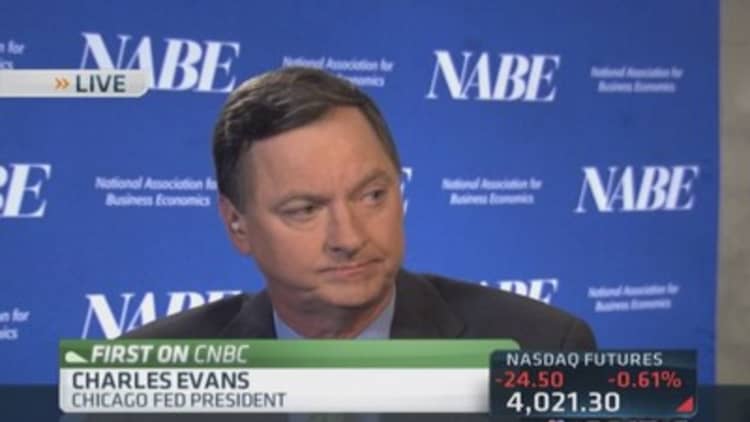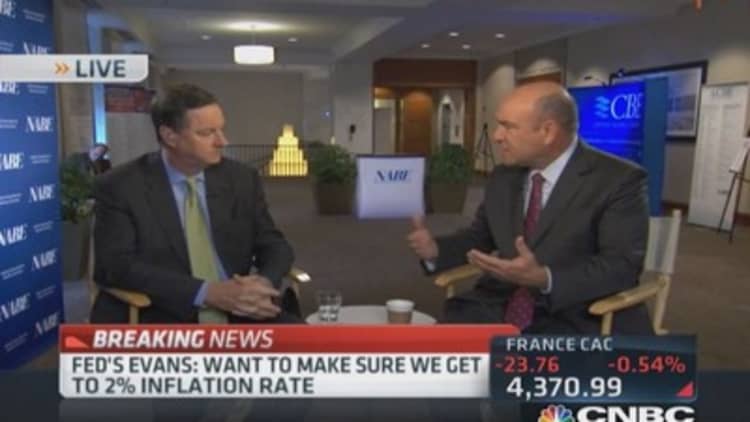
Chicago Fed President Charles Evans told CNBC on Monday he believes it would be "quite some time" before it's appropriate to start increasing interest rates from their near-zero levels.
Evans sees June as a possibility for the first rate increase, but said on "Squawk Box if it were his decision, he'd wait even longer. "If you look at the risks, we ought to balance those and be concerned that sometimes coming out of zero [rates] ... is really a difficult proposition for the economies. And so I'd like to be patient."
Evans is one of the Fed's dovish regional chiefs. While not a voting member on the central bank's policymaking committee this year, he's a 2014 alternate and will be voting next year.

While saying he's confident the U.S. economy is getting stronger and will continue to do so, Evans wants to make sure it is strong enough before moving rates higher. He also wants to see inflation get to the Federal Reserve's 2 percent target—saying he'd be willing to "overshoot" modestly on inflation to help boost jobs.
Read MoreEconomistsslash Q3 GDP forecast, see growth ahead
Economists have lowered their estimates for third-quarter economic growth by a tenth of a percent to 3 percent, according to the National Association for Business Economics. The government is scheduled to release its advance estimate for third-quarter gross domestic product at the end of next month. The NABE survey was taken a few days after the weak August jobs report.
This Friday, the Labor Department issues the September employment report. Nonfarm payroll growth is expected to rebound to 215,000, following the disappointing 142,000 in August.
The European Central Bank meets Thursday, and it's expected to provide additional details about its asset purchase program, as the Fed moves away from bond buying with the goal of ending it altogether next month.
Evans said he doesn't see evidence of financial market bubbles as a result of Fed policy. "The world economy is dictating lower interest rates around the world. In Europe, interest rates are low. The [German] Bund is low. Japan, they're low. There's not a chance that the U.S. through higher [Fed] fund rates policy can engineer higher interest rates around the world."
On the Fed's other stimulus lever, economists mostly expect the first interest rate hike to be in June, though some see it sooner. But the real debate is how quickly the central bank would raise rates once it starts.
Read MoreNo rest for the volatility-weary on Wall Street
With just two trading days left in the third quarter, U.S. stock futures started off the week sharply lower following Friday's big rally, which capped a volatile week of triple-digit moves up and down for the Dow Jones Industrial Average.


